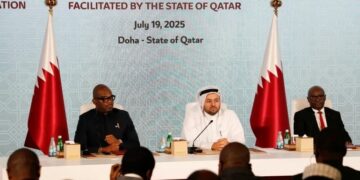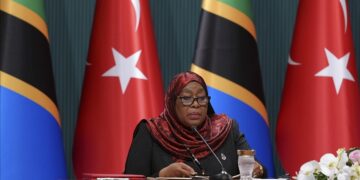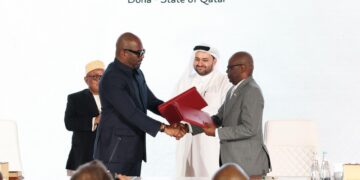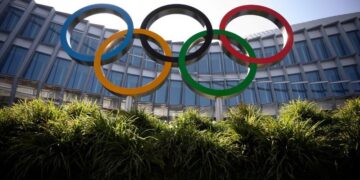With global attention turning toward Johannesburg, South Africa is entering the final stages of preparation for the 2025 Group of Twenty (G20) Leaders’ Summit. The two-day event, scheduled to begin on Saturday at the Nasrec Expo Centre, is set to mark a defining moment not only for South African diplomacy but for the African continent’s evolving role in global governance.
International Relations and Cooperation Minister Ronald Lamola, addressing the press in Johannesburg on Monday, confirmed that South Africa stands ready to welcome leaders from across the world. A total of 42 countries have confirmed participation in the summit, including all G20 member states except the United States, which is expected to send a lower-level delegation. In addition, 16 guest countries and six regional organisations representing Africa, the Caribbean, and East Asia will be in attendance.
Minister Lamola stated that the logistical and diplomatic preparations remain firmly on course. Discussions are already underway regarding the adoption of the South African Declaration, the summit’s anticipated joint communique. South Africa hopes the final text will reflect a balanced consensus that incorporates the diverse voices of the Global South while remaining constructive and solution-oriented on urgent global issues.
Crucially, South Africa’s G20 Presidency is significant not only for its procedural role but also for its substantive direction. As the first African country to host the G20, South Africa is leveraging the opportunity to reshape the global policy discourse, placing African perspectives and priorities at the centre. In his remarks, Lamola underscored that the country’s leadership is rooted in a deep commitment to equity, inclusion and multilateral engagement that is responsive to the lived realities of the Global South.
Three key sessions will structure the summit’s deliberations: inclusive and sustainable economic growth, building a resilient world, and a fair and just future for all. These sessions will tackle a spectrum of interlinked challenges. Among them are trade reform, international development financing, sovereign debt sustainability, climate adaptation, food system transformation, energy transition, the governance of critical minerals, job creation, and the ethical governance of artificial intelligence.
South Africa’s agenda has been crafted to reflect the needs and aspirations of countries that have historically been underrepresented in global economic fora. The inclusion of issues such as climate finance, just transition pathways, and access to emerging technologies signals a push for development frameworks that are not externally imposed but internally determined.
The country’s presidency also aligns with the African Union’s growing influence following its admission as a permanent member of the G20 during India’s presidency in 2023. This institutional shift is increasingly allowing Africa to engage from a position of agency rather than mere advocacy. According to policy observers, the Johannesburg summit is expected to advance a more inclusive multilateral framework that recognises interdependence without reinforcing existing asymmetries of power.
Lamola expressed confidence that South Africa’s stewardship of the summit will result in outcomes that transcend mere symbolism. “It is our firm belief that the outcomes of the South African Summit will be ambitious and leave a lasting legacy for the cause of the African continent and the Global South beyond South Africa’s historic G20 Presidency,” he remarked.
The summit will take place amidst heightened global uncertainty. Economic fragmentation, geopolitical realignment, and climate volatility have exposed the limitations of traditional economic paradigms. For many in Africa and the broader Global South, the summit offers a platform to advocate for systemic reforms that prioritise collective resilience over zero-sum competition.
With preparations near completion, Johannesburg is poised to become a crucible for diplomatic dialogue that may redefine the contours of global cooperation. Whether the summit produces substantive breakthroughs or gradual shifts, it reflects an ongoing recalibration of multilateral diplomacy in which African actors are no longer peripheral participants but central contributors to shaping the global agenda















